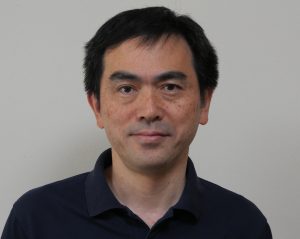The Institute for Nano Quantum Information Electronics (NanoQuine) is a cross-departmental organization under the direct control of the Office of the President established by the University of Tokyo in October 2006 for the purpose of creating innovations and fostering human resources based on nano science and technology and information science. It brings together the University of Tokyo’s “knowledge” in nano-technology, quantum science, and information technology, and is working to enhance it to form a world hub in the field of nano-quantum information science and technology, while maintaining strong ties with research organizations outside the university, including those overseas.
This institute was established as a core research organization to promote the “Collaborative Research Center for Nano-Quantum Information Electronics” project, which was adopted as one of the programs for the Creation of Innovation Centers for Advanced Interdisciplinary Research Areas Program in the 2006 Special Coordination Funds for Promoting Science and Technology (now the Regional Industry-Academia-Government Collaboration on Science and Technology). The project was completed in 2015 and received an “S” rating in the post-evaluation, solidifying its foundation as a center for industry-academia collaboration, and is now further strengthening and promoting its activities to create innovation and develop human resources through further industry-academia collaboration.
In the Quantum Innovation Co-Creation Center of NanoQuine, six collaborating organizations (Sharp, NEC, Hitachi, Fujitsu Laboratories, QD Laser, and the Photonics Electronics Technology Research Association (PETRA)) have established “University of Tokyo Corporate Labs”. We are promoting collaborative research between industry and academia. At present, we are steadily producing world-class results, including the development of collaborative research among multiple companies and other collaborative styles. In addition, QD Laser, a venture company, has been creating innovation by developing the market for quantum dot lasers in a variety of fields, including business models.
Through the establishment of this center, we have been promoting the development of next-generation devices by integrating the advanced fields of nano-technology, quantum science, and information technology, including quantum dots, as well as the establishment of quantum information technology to demonstrate the operation of more advanced quantum cryptography and quantum computers. We have also been promoting fundamental research on energy devices, such as quantum dot solar cells. Through these technological innovations, we aim to create further innovations for a safe, secure, and green information society in the future. At the same time, as a cross-departmental organization, we are striving to reform our systems. In order to accelerate the creation of innovation, we are actively promoting a number of reform projects, including intellectual property reform, employment system reform, research exchange suitable for an international center, and the development of human resources with a bird’s-eye view of the future through the implementation of cross-sectional educational programs that transcend the boundaries of science and engineering and include collaborative enterprises.
We look forward to your further support and encouragement.

Director of NanoQuine
Akira Furusawa
Professor,
Graduate School of Engineering,
The University of Tokyo
